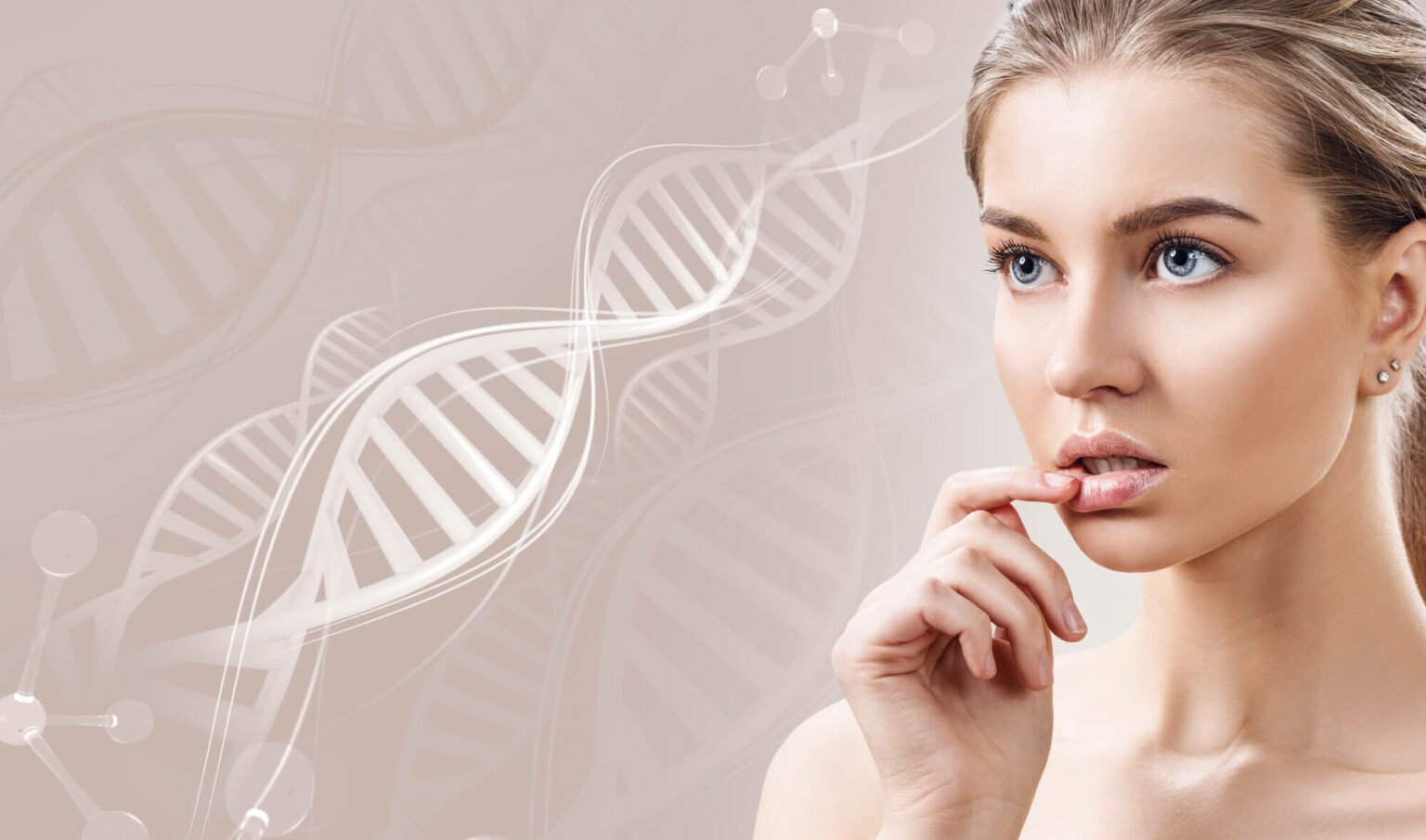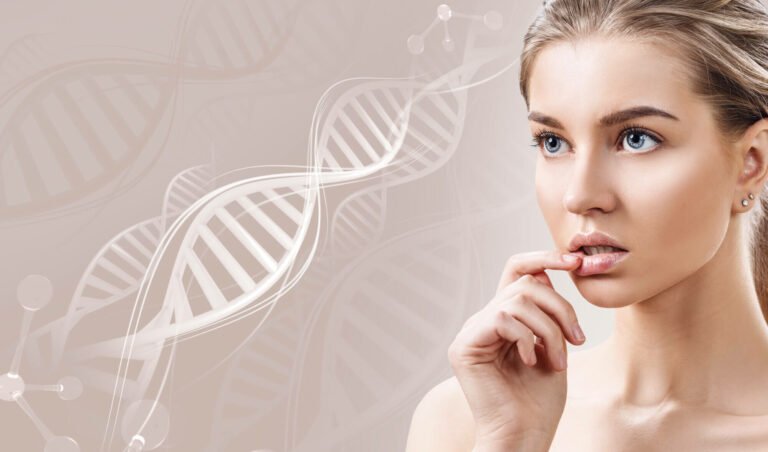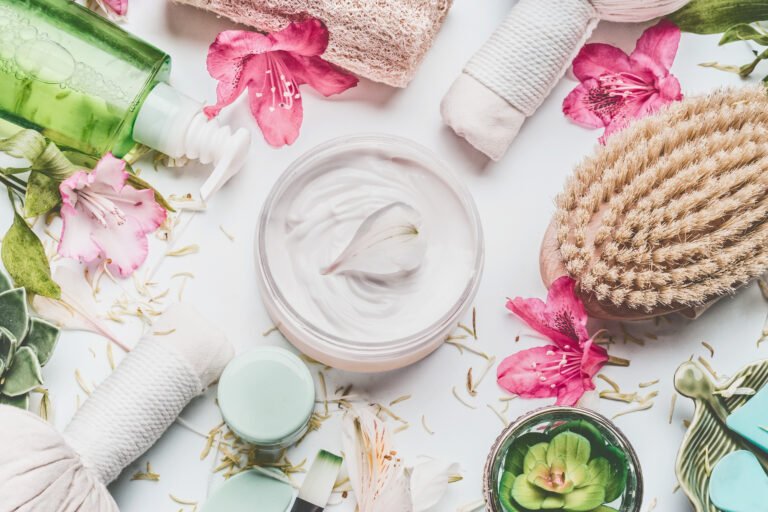The Importance of Collagen for Skin

Table of Contents
Did you know that collagen is the most abundant protein in your body?
Collagen plays an essential role in many body systems, including joints, bones, and most obviously, your skin. Collagen naturally breaks down as you age, but not everyone eagerly embraces thin skin and wrinkles.
What’s the importance of collagen for skin? How does collagen affect signs of aging? And most importantly, what can you do to protect and replenish your collagen?
Find out the answers to all these questions and more in our detailed guide to collagen for skin.
Why is Collagen Important for Skin?
Collagen is a structural protein that exists in your connective tissues, tendons, skin, bones, and cartilage. It provides support and strength to these areas and aids in tissue repair, cellular communication, migration, and your body’s immune response.
Collagen plays a very important role in the health and function of your entire body. In addition to providing crucial internal support, there are also major collagen benefits for skin.
Collagen and elastin are the vital proteins responsible for giving your skin its elasticity and “bounce.” Collagen is produced throughout your lifetime but naturally decreases with age. Meanwhile, elastin levels peak in the womb and slowly fade with age.
Picture a young toddler’s skin, and imagine how soft, plump, and firm it is. Children have such wonderful skin because their collagen production is at its peak, and their elastin levels are still going strong!
Benefits of Collagen
Collagen gives skin its strength and firmness. Maintaining a high level of collagen in your body is crucial to support structural health and prevent signs of aging in your skin. Taking collagen supplements, using collagen skin care, and protecting your skin can:
- Improve skin elasticity
- Improve skin hydration
- Improve blood flow
- Heal wounds and prevent scars
- Prevent and reduce stretch marks
- Reduce visible cellulite
- Reduce dark spots
- Support self-esteem and reduce anxiety
What Causes Loss of Collagen?
Aging, poor diet, and certain autoimmune conditions like rheumatoid arthritis and lupus can lead to a loss of collagen. The most common cause of collagen loss is age.
After about age 25, your body starts to slow down its collagen production, although this function will never go away completely, as with elastin. This natural decrease in collagen leads to thin skin and wrinkles that continue to deepen with age.
Other causes for collagen loss are more controllable. People who smoke cigarettes, for example, have more premature signs of aging due to weakened collagen and dry skin. Drinking alcohol in excess also slows collagen production and limits the skin’s ability to repair itself.
In addition to avoiding cigarettes and alcohol, you should be mindful of your diet. Sugary, processed foods cause glycation, which prevents collagen from fully interacting with your cells.
The sun is the biggest enemy of healthy, firm skin. Every time you go outside or sit in a sunny area, you should wear sunscreen and sunglasses to protect your face. Sunlight and UV rays degrade collagen, causing the skin to age at hyper-speed.
What Happens When You Don’t Have Enough Collagen?
Collagen is one of the most important proteins in your body, and nearly every body system needs collagen. When you don’t have enough collagen, you’ll likely notice some negative effects.
Unfortunately, aging is unavoidable, so all people can expect to see some changes to their appearance. However, premature and significant signs of aging are a classic indication that you need more collagen in your body.
When collagen reaches an extremely low level, you could have a collagen deficiency. Collagen deficiency is a serious concern that must be addressed right away. Signs of a collagen deficiency could include:
- Dry skin
- Weak, thin skin
- Sagging skin and wrinkles
- Brittle hair
- Brittle nails
- Stiff joints
In severe cases, such as those caused by an autoimmune disorder, a lack of collagen could cause more extreme problems. Serious issues caused by collagen deficiency could include:
- Itchy, painful rashes
- Joint and muscle pain
- Mouth ulcers
- Open body sores
- Sensitive, flaking scalp
- Hair loss
- Cold and numb extremities
If you suspect you might have a serious collagen deficiency, it’s important to have your health assessed by a doctor. You could have an autoimmune condition. However, in most cases, collagen deficiency is something you can prevent and address on your own.
Types of Collagen for Skin
There are actually around 28 types of known collagen in the human body. Collagen Type 1 is the most common, accounting for up to 90% of all collagen found throughout the human body and in animals. This type of collagen is easy to acquire from multiple animal and plant-based sources.
There are a lot of options when it comes to finding a collagen source or supplement that’s right for you. Research has shown that nearly any type of collagen is great for your skin, joints, and overall health!
Animal-Based Collagen
Collagen isn’t only found in humans. All living animals need collagen to support their bodies and structural systems. Some body parts contain more collagen than others, and humans can gain a significant amount of collagen simply by consuming these animals.
For example, the skin, joints, and bones of animals contain a high amount of skin-boosting nutrients, including collagen. Bone broth and bone marrow, gelatin, and pig knuckles are some common ways people consume animal-based collagen.
We don’t often serve up a pile of these animal parts on a plate, but we can consume animal collagen in other ways. Not so eager to eat more pig knuckles? You can also easily find animal-based collagen in supplements and skincare products.
Marine Collagen
Not all collagen comes from land animals. Fish and many marine invertebrates, like jellyfish, also provide some of the best collagen for skin. Some people choose to take marine collagen for religious, environmental, or personal reasons.
Marine collagen is collagen sourced from fish, jellyfish, and other aquatic life. Marine collagen, also commonly referred to as fish collagen, comes in powder, pill, liquid, and topical forms. Marine collagen absorbs into the body in much the same way as land-animal collagen.
Plant-Based Collagen
Some collagen products aren’t suitable for vegans, who avoid using any animal-sourced ingredients. Luckily, there are plant-based collagen alternatives available for those who feel concerned about animal and environmental welfare.
Collagen from animal sources isn’t actually readily absorbed into the body. Instead, the body breaks down animal collagen into its basic amino acids, and uses those amino acids to build new proteins.
Plant-based collagen supplements and topical ingredients focus on providing the same essential amino acids as animal collagen. These amino acids can come from any plant-based protein source, such as soy, legumes, lentils, nuts, seeds, and mushrooms. Products with snow algae powder are excellent natural collagen boosters for people avoiding animal products.
How to Protect Your Collagen
Some loss of collagen as you age is unavoidable, but you can slow the process and limit the amount of change your body exhibits. Protecting your body’s natural collagen is crucial for preventing the visible signs of skin aging. Luckily, there are a few simple precautions you can take to ensure that your collagen levels stay as high as possible.
Stay Hydrated
Drinking more water is one of the best things you can do for your skin in general. Water is like motor oil for the body, making sure that cells communicate, vitamins absorb, and everything transports easily. In addition to drinking lots of water, hydrate your skin from the outside in with a daily moisturizer and night cream.
Avoid the Sun
The sunlight is awful for skin for a number of reasons; it dries the skin barrier, damages cells, and breaks down collagen and elastin. Once these fibers break down, it can take a long time to regain bounce and elasticity in your skin. Make sure you wear an SPF 30 or above every day and avoid sitting in the sun for long periods of time.
Stop Smoking
Plenty of people smoke cigarettes to relax, but tobacco products could be ruining your skin and generating more stress. The toxins in cigarettes damage collagen and elastin, impair circulation, create hyperpigmentation, and more. If you’re a smoker who’s worried about your skin, it’s imperative that you cut back on your cigarette use.
Protect Against Pollution
Did you know that air pollution could be damaging your skin’s collagen? Air pollutants cause inflammation and generate free radicals in your skin, which break down your collagen and cause problems with wrinkles and sagging. You can’t always avoid high-pollution areas like inner cities, but you can protect your skin by washing daily, exfoliating, and wearing protective moisturizer and sunscreen.
Eat More Antioxidants
Antioxidant-rich foods like blueberries, cherries, and dark leafy greens are great for supporting your skin and overall health. Antioxidants neutralize free radicals, keeping them from stealing your collagen. Foods with antioxidants also often add extra hydration and vitamin C, so stock up on your rich produce!
Encourage Healthy Skin
Use skincare products that protect your skin’s natural barrier and support collagen maintenance. Ingredients like retinol, vitamins C and E, and more work to support skin health and encourage your body’s natural collagen production.
How to Get More Collagen
Protecting the collagen you currently have is important, but it won’t do much to improve your skin elasticity if you’re already collagen-deficient. In addition to taking the protective measures listed above, replenish your collagen with these helpful sources.
Natural Sources of Collagen
To a certain extent, you can up your collagen levels without the use of special supplements or concentrated creams. Select more tough cuts of meat, like chuck steak and brisket, and add collagen-rich foods like bone broth, fish skin, and gelatin to your diet.
If you don’t eat meat or you prefer not to eat these cuts, look for foods rich in amino acids. Foods like fish, chicken, eggs, legumes, tofu, and tempeh provide the building blocks for your body to produce more of its own collagen. Collagen also requires nutrients like zinc, vitamin C, and vitamin E, so make sure you meet your daily recommended amount!
Collagen Supplements for Skin
Tracking your collagen intake through food can feel like a full-time job. Luckily, raising your collagen can be much easier with the help of oral supplements. Healing your skin from the inside out is one of the best ways to ensure long-term skin health and collagen retention!
Look for an anti-aging supplement with ingredients like Moldavian dragonhead extract, vitamin C, vitamin E, and natural collagen. Incorporate oral supplements into your morning routine every day to see amazing results that last a lifetime!
Skincare Products with Collagen
Obtaining beautiful skin can be as simple as a swipe of night balm! Heal your skin from all angles with skin care products designed to boost and protect collagen. External skincare is just as important as internal health to protect and increase collagen production.
Shop for beauty balm containing natural, proven ingredients like red algae extract, snow algae powder, shea butter, and ginseng root. These carefully selected ingredients unlock the cell renewal process, leading to reduced wrinkles and plumper, firmer skin.
Support Healthy, Glowing Skin
We can’t emphasize enough the importance of collagen for skin. Collagen is essential not only for skin health and structural support, but for beauty that shines from the inside out.
Ingredient Secret is your resource for natural, effective skincare products, supplements, and more. We’re dedicated to bringing you and your skin the most efficient, research-proven results.
Watch the years melt away and discover fresh, firm skin again; visit this page to learn more about our anti-aging skincare products!


